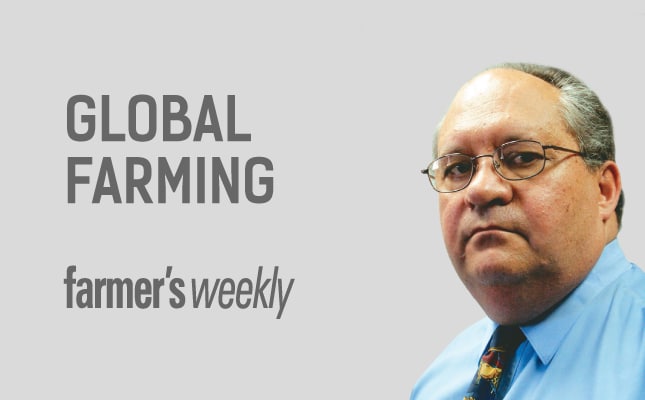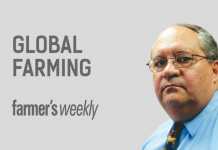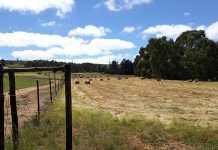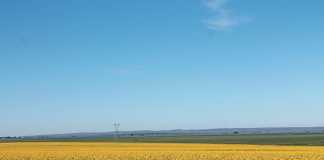
Many people dream of farming. Some have family members who farm, others simply see it as a healthy way of life. The reality is, of course, very different, as those who do take the plunge invariably discover. According to the department of agriculture’s latest economic overview, the total net farm income for the 12-month period to June 2014 is estimated at R61,7 billion. Total farming assets are estimated at R299,8 billion and farm debt at R115,1 billion.
READ:Red meat industry must control its own future
At a conservative rate of 9%, annual interest payments equal R10,4 billion, or 17% of farm income. In spite of the relative high return on assets, farmers’ debt increased in the 12 months by 23,3%, while the total value of farm assets increased by 8,4%.
Farm debt increased from 34% to 38% in spite of a relatively favourable year. On average, South African farmers did well in the past year. Good maize and wheat crops and higher product prices contributed to the increase in net income.
But with a few very large enterprises responsible for the bulk of agricultural production, the majority of farmers find it difficult to make a profit. This is particularly true for new farmers, who still have to learn through trial and error to make as few mistakes as possible. It can be done, though. In most cases, those who began with limited capital and developed into successful commercial farmers started off small and expanded gradually, or ‘organically’.
A recent publication from international auditors Moore Stephens lists the ‘seven deadly sins’ that result in the failure of businesses. They are also applicable to agriculture.
No business plan
Proper business plans must include short- and long-term goals. This will help to keep you focused on the main issues and discourage you from entering in exciting new ventures with high risk and little chance of success.
Growing too fast
Growth is needed in agriculture as input prices increase at a faster rate than product prices. However, growth must be affordable, and sometimes it makes sense to take a breather and consolidate before expanding again.
Overspending
This is a big problem in agriculture. As farm income is usually received irregularly, the actual income is not known before the wool or grain cheque is in the bank. In the interim, the farm must still operate and it is very easy to overspend in anticipation of income that may only partially materialise. A farmer can overspend on farm inputs and capital equipment, but it’s much easier to spend too much on household and other personal expenses. This is as dangerous as overspending on farm requisites. In many cases, plastic surgery on shop and other credit cards is the only way to limit this.
Lack of management experience
In agriculture, the link between your actions and the result you get is not a fixed one. Doing the right things won’t always result in the right outcome. Managing a farm is a more hands-on business than managing any other kind of enterprise.
Poor cash flow management
The irregular cash flow that characterises most farming enterprises is very difficult to manage. A common mistake is to think that if a budgeted expense such as a repair cost did not occur when expected, it will not happen at all, and then, on the basis of the better-than-expected net cash flow, decide to increase expenditure. A cash-flow budget and statement are essential. But resist the temptation to make cash flow budgets look too good!
Poor administration
There still are farmers who, once a year, take a box full of papers to an accountant so they can draw up annual financial statements. In the current farming situation with fast- changing conditions and volatile prices, farmers need to keep ongoing control of income and expenditure.
Ignoring the competition
New farmers would do well to copy the type of farming enterprise and production practices of experienced farmers in the area. For example, if they’re farming extensive beef cattle, it’s probably not a good idea to start farming with organic sheep there. If sheep farming were more profitable, the existing farmers would have done it.
While agriculture is a difficult business with many uncertainties, the rewards for those who manage it successfully are indeed large. The quality of life that farmers enjoy is also much higher than that experienced by city dwellers. But to enjoy this quality of life, a farm must be profitable. Before you leap into farming, carefully and conservatively evaluate the profitability of your proposed farm.
Dr Koos Coetzee is an agricultural economist at the MPO. All opinions expressed are his own and do not reflect MPO policy.




